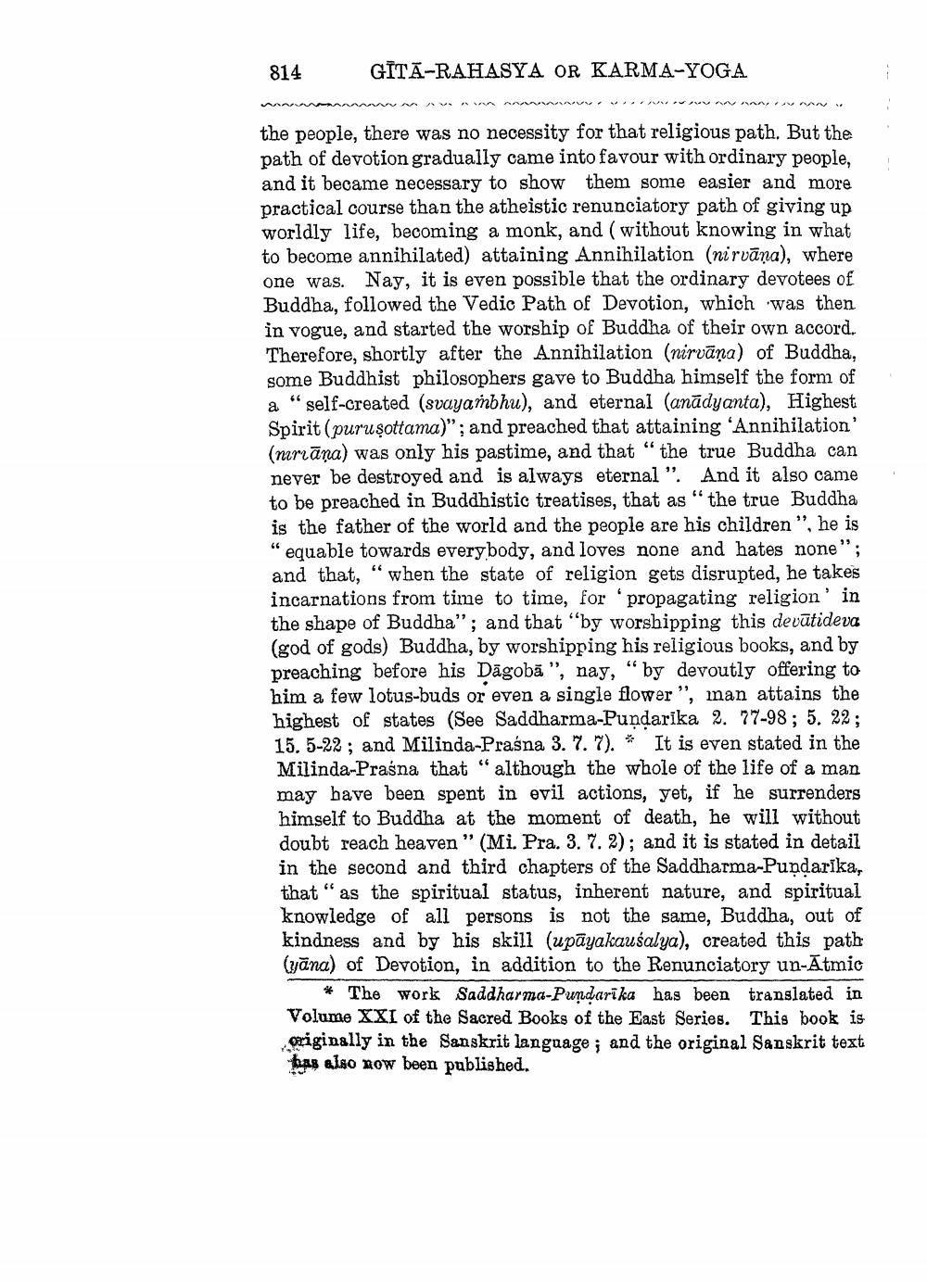________________
814
GĪTĀ-RAHASYA OR KARMA-YOGA
the people, there was no necessity for that religious path. But the path of devotion gradually came into favour with ordinary people, and it became necessary to show them some easier and more practical course than the atheistic renunciatory path of giving up worldly life, becoming a monk, and (without knowing in what to become annihilated) attaining Annihilation (nirvāna), where one was. Nay, it is even possible that the ordinary devotees of Buddha, followed the Vedic Path of Devotion, which was then in vogue, and started the worship of Buddha of their own accord. Therefore, shortly after the Annihilation (nirvāṇa) of Buddha, some Buddhist philosophers gave to Buddha himself the form of a “self-created (svayambhu), and eternal (anādyanta), Highest Spirit (puruşottama)"; and preached that attaining Annihilation' (narrāna) was only his pastime, and that “the true Buddha can never be destroyed and is always eternal". And it also came to be preached in Buddhistic treatises, that as “the true Buddha is the father of the world and the people are his children", he is “ equable towards everybody, and loves none and hates none"; and that, “when the state of religion gets disrupted, he takes incarnations from time to time, for 'propagating religion in the shape of Buddha"; and that "by worshipping this devātideva (god of gods) Buddha, by worshipping his religious books, and by preaching before his Dāgobā", nay, “by devoutly offering to him a few lotus-buds or even a single flower ", man attains the highest of states (See Saddharma-Pundarika 2. 77-98; 5. 22; 15.5-22; and Milinda-Praśna 3.7.7). * It is even stated in the Milinda-Praśna that " although the whole of the life of a man may have been spent in evil actions, yet, if he surrenders himself to Buddha at the moment of death, he will without doubt reach heaven" (Mi. Pra. 3. 7. 2); and it is stated in detail in the second and third chapters of the Saddharma-Pundarika, that " as the spiritual status, inherent nature, and spiritual knowledge of all persons is not the same, Buddha, out of kindness and by his skill (upāyakausalya), created this path (yāna) of Devotion, in addition to the Renunciatory un-Ātmic
* The work Saddharma-Pundari ka has been translated in Volume XXI of the Sacred Books of the East Series. This book is originally in the Sanskrit language ; and the original Sanskrit text has also now been published.




